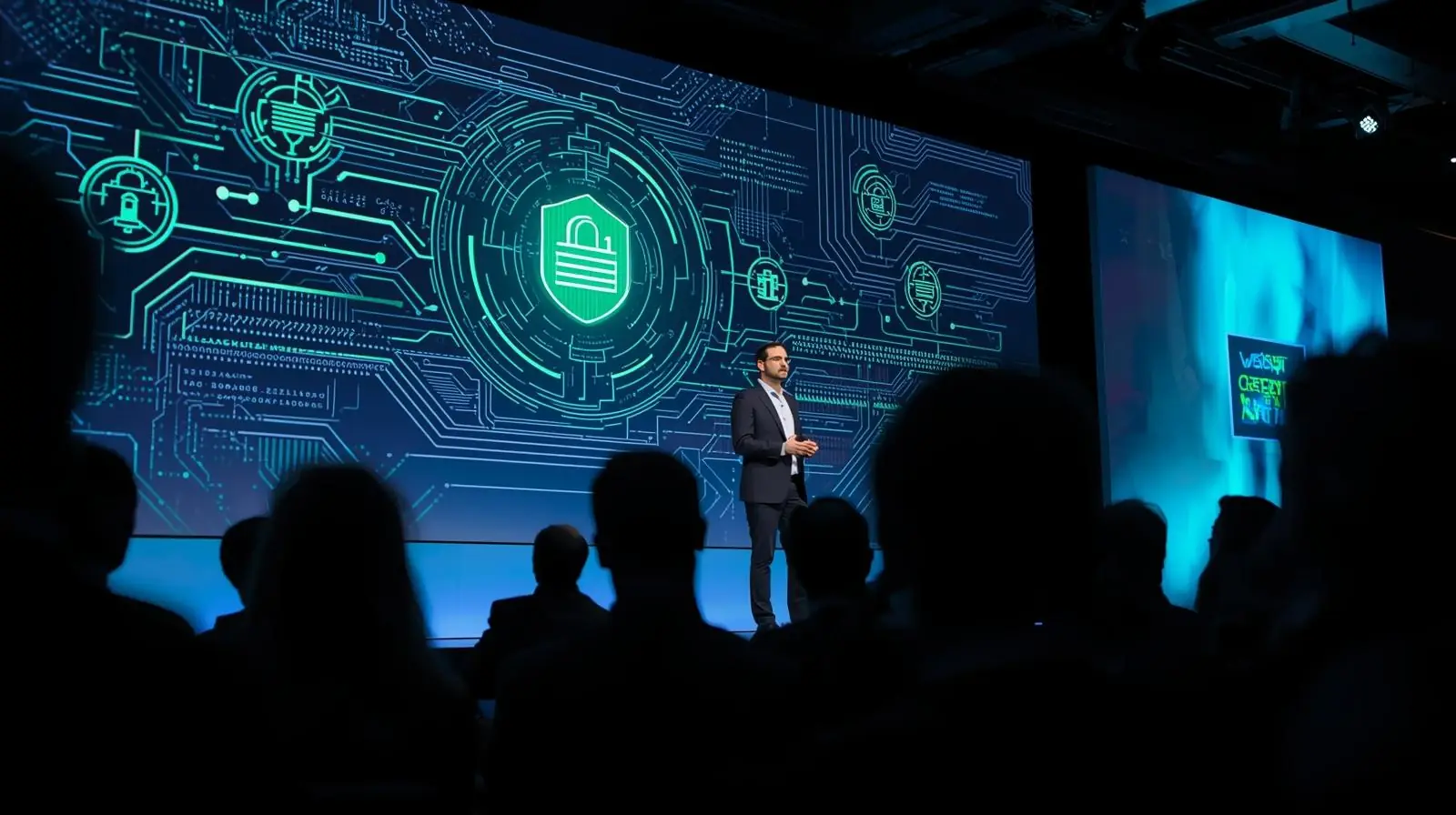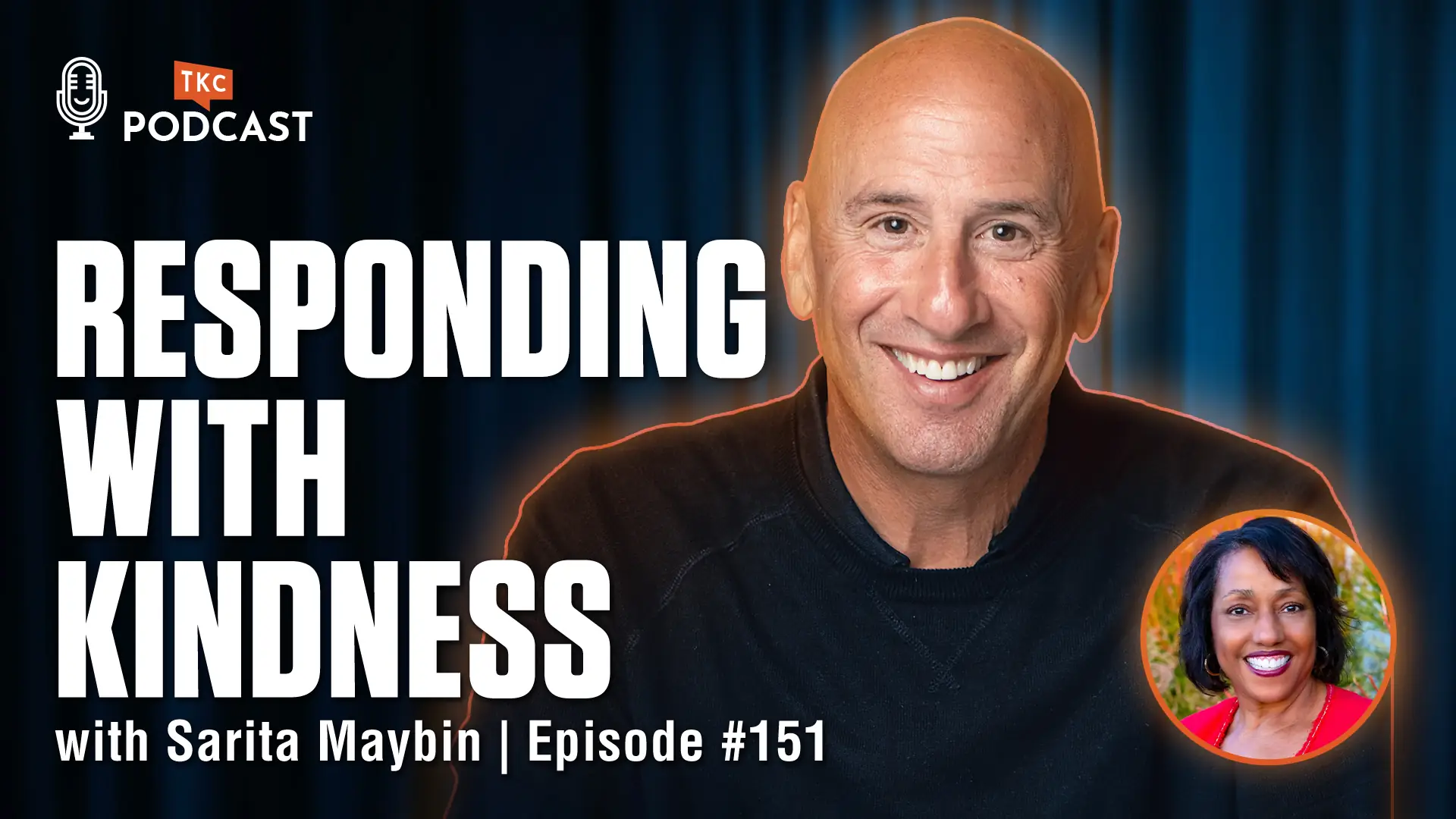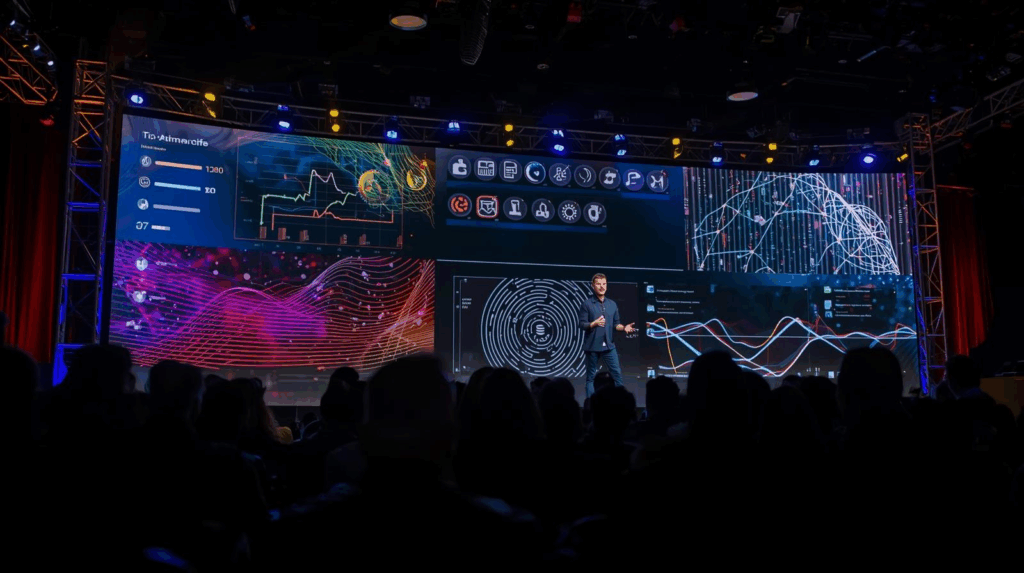
April 3, 2023How to Ensure and Measure The Success of A Keynote Speaker At Your Event
A keynote speaker is an essential component of any event as they have the ability to set the tone, inspire and motivate the audience, and convey important me...
A keynote speaker is an essential component of any event as they have the ability to set the tone, inspire and motivate the audience, and convey important messages. They bring a fresh perspective, share their expertise, and provide valuable insights that can help attendees gain new knowledge and skills.
A great keynote speaker can captivate the audience, create a memorable experience, and leave a lasting impact long after the event has ended. They can help to increase attendance and generate interest in the event, making it a success for both attendees and organizers alike.
However, ensuring the success of a keynote speaker at your event can be a daunting task, but it is essential to make the most of your investment and achieve the desired outcome.
Here are some tips for guaranteeing the success of a keynote speaker at your event
- Research and select the right speaker
Research and select a keynote speaker who has experience and expertise in your industry or the topic of your event. Look for a speaker who aligns with your event’s goals and audience demographic. Review their past presentations and testimonials from previous clients to ensure they are a good fit for your event.
- Clearly define your goals and expectations
Clearly define your goals and expectations for the keynote speaker before the event. Communicate with the speaker and provide them with a detailed brief of the event’s goals, audience, and format. Outline the desired outcome and the key messages you want the speaker to convey.
- Collaborate with the speaker
Collaborate with the speaker to ensure that their presentation aligns with your event’s theme and objectives. Provide them with background information about your organization or business and the industry to ensure they understand your perspective. Work with the speaker to create an outline of the presentation and review it with them to ensure that it aligns with your goals and expectations.
- Engage the audience
Engage the audience by creating an interactive and dynamic environment. Encourage the speaker to use storytelling, humor, and interactive activities to keep the audience engaged and attentive. Ask the audience to provide feedback and questions during and after the presentation to encourage participation and create a dialogue.
- Promote the speaker
Promote the keynote speaker before the event to generate interest and create buzz. Highlight their expertise and the key messages they will convey during their presentation. Encourage attendees to share their excitement about the speaker on social media, which can help generate additional interest and exposure.
- Provide the right equipment and resources
Provide the keynote speaker with the necessary equipment and resources to ensure that their presentation runs smoothly. Provide them with a microphone, podium, projector, and screen. Test the equipment before the event to ensure that there are no technical issues that may disrupt the presentation.
- Follow up after the event
Follow up with attendees after the event to collect feedback on the speaker’s presentation and its impact on the audience. Use this feedback to improve future events and evaluate the effectiveness of the keynote speaker. Provide the speaker with feedback to help them improve their performance and better align with your event’s goals.
Measuring the success of a Keynote Speaker at your Event

A keynote speaker can be a valuable addition to any event, but how do you know if their presentation was a success? Measuring the success of a keynote speaker can be a challenging task, but it’s essential to evaluate the effectiveness of the presentation and ensure that it aligns with the goals of your event. In this article, we’ll explore the various metrics you can use to measure the success of a keynote speaker at your event.
- Define your goals
Before you can measure the success of your keynote speaker, it’s essential to define your goals for the event. What do you hope to achieve with the speaker’s presentation? Are you looking to educate your audience, inspire them, or motivate them to take action? Once you’ve identified your goals, you can use them to determine the effectiveness of the keynote speaker’s presentation.
- Audience feedback
One of the most valuable metrics for measuring the success of a keynote speaker is audience feedback. Surveys or polls can be distributed to attendees after the presentation to gauge their level of satisfaction with the speaker’s content and delivery. Questions can be asked to evaluate the speaker’s effectiveness in achieving the goals set for the event. Did the speaker provide value? Were the audience’s expectations met? Was the audience engaged? The feedback gathered will provide insight into the effectiveness of the speaker’s presentation and the level of satisfaction of the audience.
- Social media engagement
Social media provides an excellent platform for measuring the success of a keynote speaker. Monitoring hashtags and other social media metrics can provide insight into the audience’s level of engagement with the speaker’s message. Tracking social media engagement can also provide an indicator of the speaker’s overall impact on the event and help measure their success. Analyzing social media engagement before, during, and after the keynote can also help identify opportunities for improvement in future events.
- Attendance and retention rates
Attendance and retention rates can provide insight into the effectiveness of the keynote speaker’s presentation. High attendance rates and low drop-out rates indicate that the speaker’s topic was of interest to the audience and that they found value in attending the presentation. On the other hand, low attendance rates and high drop-out rates may indicate that the speaker failed to engage the audience or that the topic was not of interest.
- Business Impact
If the event is for a business or organization, it’s important to evaluate the impact of the keynote speaker’s presentation on the business or organization. If the presentation was intended to drive sales, increase engagement, or motivate employees, the business impact can be measured by evaluating sales figures, customer engagement, or employee motivation levels. The business impact is a critical metric to measure the overall success of the event, and the keynote speaker’s role in achieving the desired outcome.
- Follow-up actions
Following up with attendees after the event can provide insight into the effectiveness of the keynote speaker’s presentation. For example, if the speaker’s goal was to motivate the audience to take action, following up with attendees can determine if they did take action and if the speaker’s message had a lasting impact. Surveying attendees after the event can also provide valuable feedback on how the speaker’s presentation affected their perception of the organization or business.
- Return on investment (ROI)
The success of a keynote speaker can also be measured by evaluating the return on investment (ROI) of the event. ROI can be measured by comparing the costs of the event to the benefits gained, such as increased sales or improved employee engagement. If the speaker’s presentation contributed significantly to the overall success of the event, then the ROI of the event can be attributed, in part, to the keynote speaker’s performance.
Overall, a great keynote speaker can create a memorable experience for attendees that they will remember long after the event has ended. By engaging the audience, providing valuable insights, and inspiring attendees to take action, a keynote speaker can create a positive and lasting impact that can benefit both attendees and the event organizers.
Guaranteeing the success of a keynote speaker at your event requires careful planning, collaboration, and engagement. By selecting the right speaker, defining your goals, collaborating with the speaker, engaging the audience, promoting the speaker, providing the right equipment and resources, and following up after the event, you can ensure that your keynote speaker contributes to the overall success of your event.
Are You Looking For The Right Speaker Fit For Your Event? Book Speakers Here
Discover More Insights
Get in TouchContact US
Fill out the form so we can best understand your needs.
A representative from The Keynote Curators will reach out to you.








